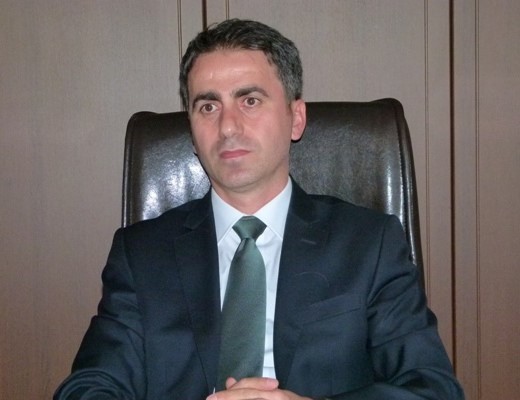Nigar Kocabaş, a pregnant woman who in 2016 was interrogated by Chief Public Prosecutor İbrahim Keskin in the northern Turkish city of Samsun for affiliation with the Gülen movement, has claimed she was verbally sexually harassed by the prosecutor, the Stockholm Center for Freedom reported, citing Bold Medya.
In remarks to Bold Medya, Kocabaş related how Keskin said her marriage was a scam and that her husband was not her unborn baby’s father. According to Kocabaş, claiming that she had “received instructions to get married and become pregnant,” Keskin said, “Your marriages and pregnancies are a scam, they’re a project! When will I be included and have my turn with you?”
Kocabaş’s lawyer objected to the prosecutor, saying his words were insulting, but Keskin continued demeaning her. “He said he would question me in front of my husband. He said we were rats and that they would find us no matter which ‘hole’ we hid in,” said Kocabaş. “He threatened me with prison where I would give birth to my child alone and raise him there.”
Kocabaş was detained and arrested in November 2016, a month after her husband was detained. She was subjected to a strip-search in detention although she was pregnant. The accounts of an increasing number of women detained on terrorism charges show that Turkish law enforcement officers use strip searches unlawfully and systematically to humiliate them.
Turkish President Recep Tayyip Erdoğan has been targeting followers of the Gülen movement, a faith based group inspired by Turkish cleric Fethullah Gülen, since the corruption investigations of December 17-25, 2013, which implicated then-Prime Minister Erdoğan, his family members and his inner circle.
Dismissing the investigations as a Gülenist coup and conspiracy against his government, Erdoğan designated the movement as a terrorist organization and began to target its members. He locked up thousands including many prosecutors, judges and police officers involved in the investigation as well as journalists who reported on them.
Kocabaş had managed to become pregnant with in vitro fertilization (IVF), and she had to take medication as a precaution against miscarriage. She claimed her medication was not given to her in prison although she had cramps and bleeding.
Kocabaş was sentenced to seven years, one month in prison. Her husband was sentenced to eight years in prison and is still serving time. Kocabaş was granted release after the prison doctor said she was at risk of miscarriage.
Kocabaş said that in light of her ordeal she did not see a future in Turkey where she would have a just trial. So she decided to leave Turkey for a safer future for her son, who was born in 2017, and herself.
Erdoğan intensified the crackdown on the movement following a coup attempt on July 15, 2016 that he accused Gülen of masterminding. The crackdown also targeted political opponents of the government, Kurdish activists and human rights defenders, among others. Gülen and the movement strongly deny involvement in the abortive putsch or any terrorist activity.
Following the crackdown, many dissidents sought freedom from oppression outside of Turkey. For instance, in 2019 Turkish asylum seekers were the third most registered group after Syrians and Iraqis in Germany according to the country’s agency for migration and refugees (BAMF).
Turkey ranked second on the list of countries of origin of all asylum-seekers in Switzerland. “The increase in Turkish asylum-seekers is a consequence of domestic developments in Turkey,” said SEM spokesman Lukas Rieder.
According to a statement from Turkish Interior Minister Süleyman Soylu on Nov. 26, a total of 292,000 people have been detained while 96,000 others have been jailed due to alleged links to the Gülen movement since the failed coup. The minister said there are currently 25,655 people in Turkey’s prisons who were jailed due to links to the movement.
